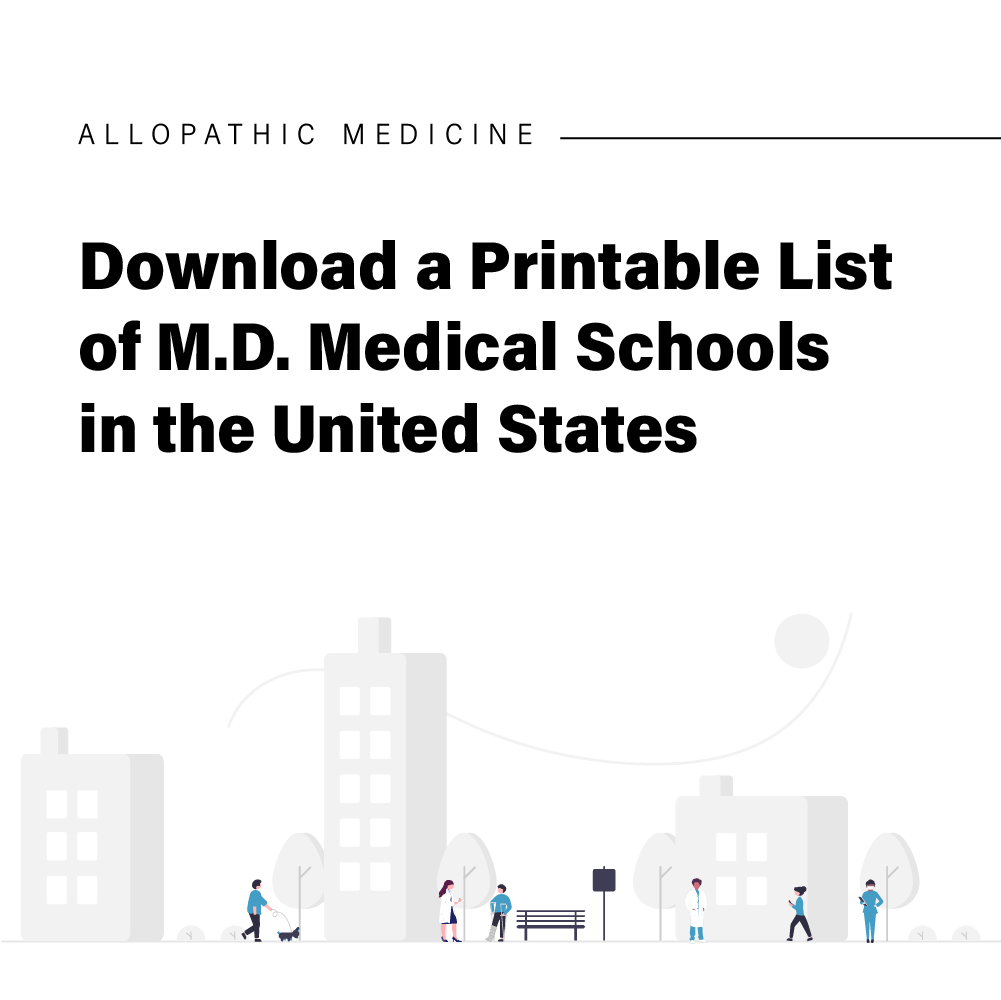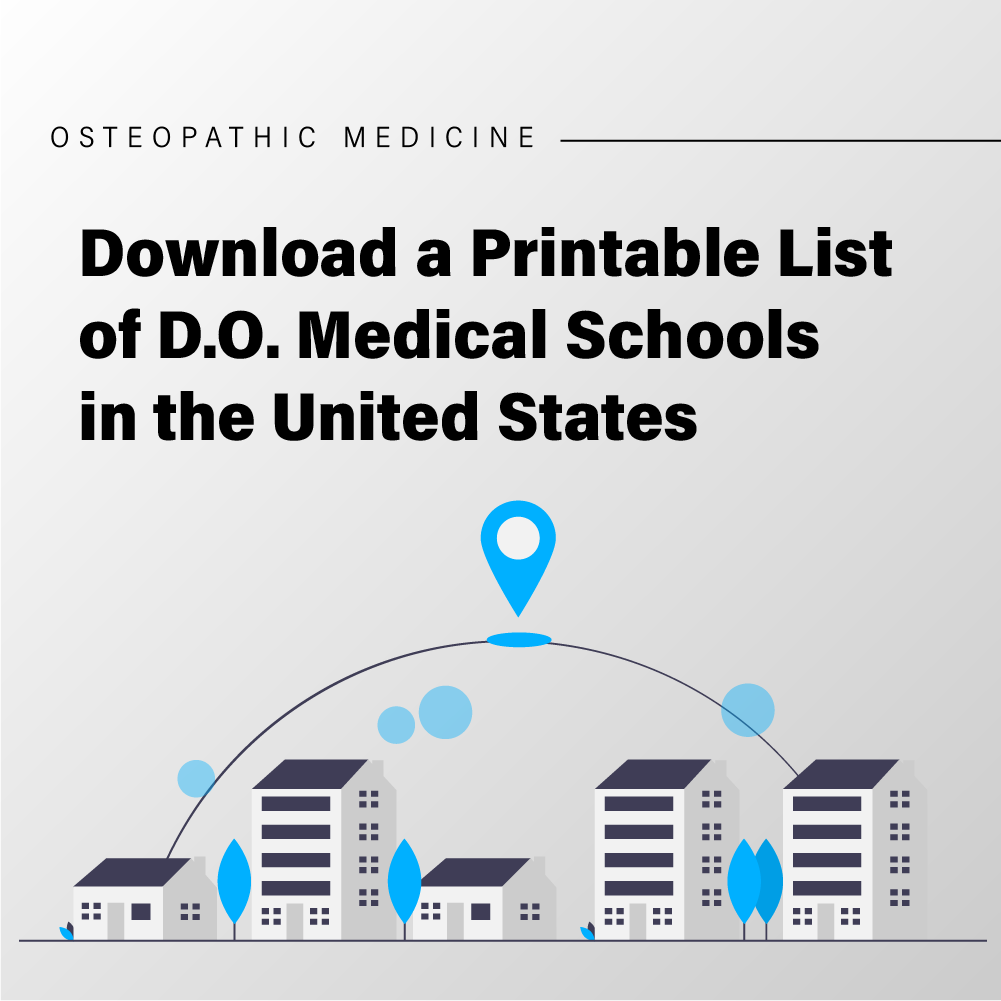An MD-MBA is a Medical Degree and a Master’s of Business Administration. Understanding business can be the game changer for your career in medicine. In this article, we’ll discuss everything you need to know about MD-MBA programs.
Table of Contents
- What is an MD-MBA degree?
- How long do MD/MBA degrees take to complete?
- What job opportunities are available with this degree?
- What are the salary ranges for MD/MBA career paths?
- Does the MBA degree require a specialization?
- Is an MD/MBA right for you?
- Which medical schools offer MD/MBA degrees?
What is an MD-MBA degree?
The MD-MBA dual degree is a joint program focused on management, finance, healthcare operations, and economics. This dual degree equips students to become leaders in a wide range of healthcare institutions.
How long do MD-MBA degrees take to complete?
The majority of programs are structured to be completed in five years. The typical path for students is first to be admitted to a university’s MD program and then apply to the MBA program separately. Completion time and requirements may vary by program–some programs may even require a leave of absence from medical school for one year. Other programs may allow students to apply to the MBA program during their first year of medical school and begin coursework for the joint degree in their second year, or vice versa. Each pathway is highly dependent on every university, but each degree must be complete before students can begin medical training at the next level.
What job opportunities are available with this degree?
MD/MBA degrees offer great flexibility for students who want to become physicians but have an affinity to entrepreneurship or business. The most common career paths in which students can utilize this degree are:
Hospital Administrator
Hospital administrators run the daily operations of a hospital. There are two main paths which you can take. You can be a general hospital administrator, which entails running entire institutions, managing budgets, and overseeing other physicians. You can also be a specialist and focus on one particular department of interest.
Private Practice Physician
Private practitioners perform medicine at their own offices and clinics rather than in large hospital settings. In other words, private practices allow physicians to have control over their yearly milestones and day-to-day operations. However, private practice is a business! The most successful private practice offices are managed by people with expertise in business and finance.
Healthcare Executive
Outside of the hospitals, healthcare executives practice management and help introduce changes to healthcare in different settings. Executives may work in consulting firms, hospices, hospital-wide systems and networks, mental health organizations, public health departments, universities or research institutions, and long-term care facilities. As a healthcare executive, you may hold a position as head of a department or as a chief executive officer. Here, you can contribute to and lead improvements to entire systems focused on health care delivery and caregiving.
Nonprofit Manager
As one of the largest and well-known nonprofits worldwide, Doctors Without Borders is managed by experts in medicine and business. In nonprofit management, you can be a leader in similar organizations worldwide.
Healthcare Consultant
As a consultant in healthcare, you can practice in all of the above fields. With expertise in medicine and industry, you can be a consultant in addition to practicing medicine full-time. As a consultant, you will advise healthcare institutions, business start-ups, or nonprofit organizations. This career path is highly dependent on your ability to build a network, find clients, and maintain a client-focused schedule.
What are the salary ranges for MD/MBA career paths?
The national range of salaries to the careers described in the previous section are:
- Hospital administrator: $90-181k
- Private practitioner: $60-303k
- Healthcare executive: $72-140k
- Nonprofit manager: $51-130k
- Healthcare consultant: $66-109k
Does the MBA degree require a specialization?
No, most programs do not require a specialization, but students are free to take courses that most suit their interest or work on graduate projects to further their understanding of a specific field. Overall, the MBA portion of the joint degree is an excellent opportunity to network. Areas of course concentration can include healthcare management, finance, marketing, strategy, entrepreneurship, or management consulting. On some occasions, MBA programs may also offer concentrations in information systems, human resources operations, international management, or product and project management.
Is an MD-MBA right for you?
The MD-MBA degree is the perfect fit for students wishing to specialize in medicine in parallel with the financial and managerial aspects of healthcare. While this joint degree will not make you a finance expert, it will equip you with the necessary tools to be proficient in healthcare management and even entrepreneurship. If you would like to invest the time and money into pursuing an MD-MBA, carefully consider what you want your career path to be. This dual degree is most fruitful for students who would like to build a career at the intersection of medicine, science, innovation, and business.
If you are thinking about an MD-MBA, consider the following questions:
- In addition to practicing medicine, do you want to pursue a leadership, entrepreneurship, or management role?
- Would you be happy to split your time away from clinical care to manage other physicians, departments, or finances?
- Are you interested in newer fields, such as biotechnology, pharmaceuticals, venture capital, or business startups in (or adjacent to) the healthcare industry?
- Do you want to own, run, and participate in private practice? As a private practice physician, you don’t need an MBA or business background, but if you would like to own and manage your practice, an MD/MBA is an excellent choice for you.
Which medical schools offer MD-MBA degrees?
Here is a list of all the medical schools that offer MD-MBA degrees:
- Albany Medical College (ALBANY MED)
- Baylor College of Medicine (BCOM)
- Boston University School of Medicine (BU SOM)
- Case Western Reserve University School of Medicine (CWRU SOM)
- Central Michigan University College of Medicine (CMU COM)
- Charles E Schmidt College of Medicine at Florida Atlantic University (FAU COM)
- Creighton University School of Medicine (CREIGHTON SOM)
- Donald and Barbara Zucker School of Medicine (ZUCKER SOM)
- Drexel University College of Medicine (DU COM)
- Eastern Virginia Medical School (EVMS)
- Emory University School of Medicine (EMORY MEDICINE)
- Florida International University Herbert Wertheim College of Medicine (FIU COM)
- George Washington University School of Medicine (GW SMHS)
- Harvard Medical School (HARVARD MED)
- Howard University College of Medicine (HOWARD COM)
- Indiana University School of Medicine (IU SOM)
- Jacob School of Medicine and Biomedical Sciences at University of Buffalo (JACOB MED UB)
- John Hopkins University and School of Medicine (HOPKINS SOM)
- Keck School of Medicine at the University of Southern California (KECK MED USC)
- Lewis Katz School of Medicine at Temple University (TEMPLE MED SCHOOL)
- Loyola University Chicago Stritch School of Medicine (LOYOLA HSD SOM)
- Mcgovern Medical School at the University of Texas Health Science Center at Houston (MCGOVERN MED)
- Medical College of Georgia at Augusta University (MCG)
- Michigan State University College of Human Medicine (MSUMD)
- Morehouse School of Medicine (MSM)
- New York University Grossman School of Medicine (NYU GROSSMAN SOM)
- Northwestern University of Feinberg School of Medicine (NU FEINBERG SOM)
- Ohio State University College of Medicine (OSU COM)
- Perelman School of Medicine at University of Pennsylvania (PENN STATE COM)
- Renaissance School of Medicine at Stonybrook University (STONYBROOK SOM)
- Rutgers New Jersey Medical School (NJMS)
- Rutgers Robert Wood Johnson Medical School (RWJMS)
- Saint Louis University School of Medicine (SLU SOM)
- Stanford University School of Medicine (STANFORD MED)
- Texas Tech University Health Sciences Center School of Medicine at Lubbock (TTUHSC)
- University of Toledo College of Medicine and life Sciences (U of TOLEDO COM)
- Tufts University School of Medicine (TUFTS MED)
- Uniformed Services University of Health Sciences F. Edward Herbert School of Medicine (CSUSM)
- University of Alabama School of Medicine (UAB SOM)
- University of Alberta Faculty of Medicine and Dentistry (UALBERTA MED)
- University of Arizona College of Medicine Phoenix (UAZ COM PHX)
- University of Calgary Cumminmg School of Medicine (U CALGARY)
- University of California, Irvine School of Medicine (UCI SOM)
- University of California, Los Angeles, David Geffen School of Medicine (UCLA SOM)
- University of Chicago Division of Biological Sciences the Pritzker School of Medicine (UC SOM)
- University of Cincinnati College of Medicine (UC COM)
- University of Connecticut School of Medicine (UCONN SOM)
- University of Florida College of Medicine (UF COM)
- University of Illinois College of Medicine (UI COM)
- University of Iowa Roy J. and Lucille A. Carver College of Medicine (IOWA COM)
- University of Kansas School of Medicine (KU COM)
- University of Kentucky College of Medicine (UK COM)
- University of Louisville School of Medicine (UL SOM)
- University of Massachusetts Medical School (U MASS MEDICAL)
- University of Miami Leonard M Miller School of Medicine (U MIAMI SOM)
- University of Michigan Medical School (U MICH MS )
- University of Minnesota Medical School (UMMS)
- University of Nebraska College of Medicine (UNMC)
- University of Nevada, Reno, School of Medicine (UNR SOM)
- University of New Mexico School of Medicine (UNM SOM)
- University of Rochester School of Medicine and Dentistry (U ROCHESTER MED)
- University of Saskatchewan College of Medicine (Usask MED DEAN)
- University of South Alabama College of Medicine (USA COM)
- University of Texas at Austin Dell Medical School (DELL MS)
- Washington University in St Louise School of Medicine (WUSTL SOM)
- Weill Cornell Medicine (WEILL CORNEL MED)
- Western Michigan University Homer Stryker MD School of Medicine (WMU SOM)
- Wright State University Boonshoft School of Medicine (WSU BOONSHOFT SOM)
Further reading:
Interested in other dual degree programs? Check out:



